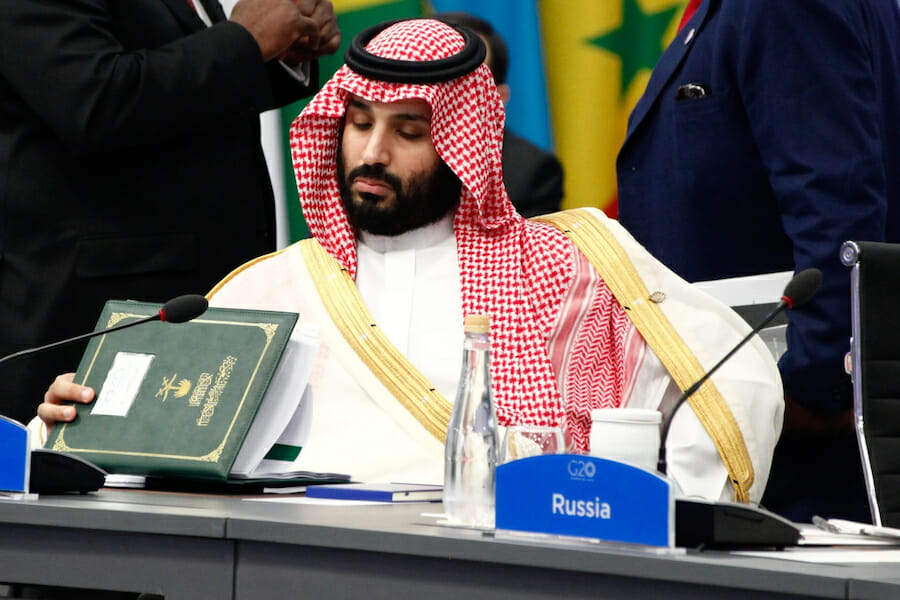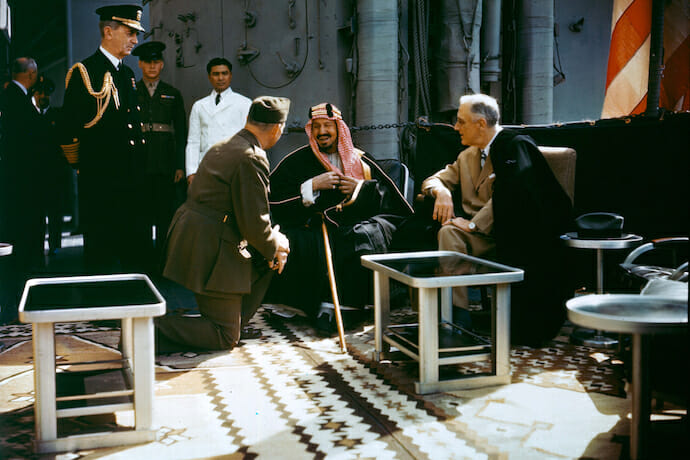
Will Saudi Arabia Get Away with Murder?
The assassination of Jamal Khashoggi, a Saudi citizen, U.S. permanent resident, and a journalist for the Washington Post at the Saudi embassy in Istanbul on October 2, has reopened the debate about the nature of the relationship between the U.S. and Saudi Arabia. The U.S. and Saudi Arabia have many shared economic and security interests, but they also have very different values and viewpoints on human rights. With the killing of Mr. Khashoggi and the current war in Yemen, the U.S. needs to balance its priorities and choose its main concerns between economic interests and its ideals. Moreover, incidents with Lebanon and Qatar indicate that the U.S. has failed to de-incentivize Saudi Arabia’s actions. Due to the U.S.’s lack of response, has Saudi Arabia taken for granted this passivity and believe they have a free pass without consequence?
The current bilateral and diplomatic relations between the United and Saudi Arabia began in 1945 with the meeting of President Franklin D. Roosevelt and King Abdul Aziz of Saudi Arabia aboard the USS Quincy. The U.S. and Saudi Arabia relationship is based on two fundamental pillars concerning economic and security interests. Although the United States and Saudi Arabia share some common interests, it is also true that they have diametrically different values and norms. While the Kingdom of Saudi Arabia is an absolute totalitarian monarchy that has been known for the repression of women, minorities, and LGBTI rights, the United States is a federal presidential constitutional republic that supports and represents equality, freedom, and justice.
The oil crisis of 1973 and the terrorist attacks of September 11 led to disagreement between both countries, but it did not gravely affect the relationship between them. However, the latest Saudi moves in the international realm such as the above mentioned Khashoggi killing, the abduction of the prime minister of Lebanon, the war in Yemen, and the confrontation with Qatar has begun to wear at their rapport.

Past incidents should not concern the U.S. However, current behavior is essential in predicting Saudi Arabia’s future actions under the command of Crown Prince Mohammad bin Salman. Regardless of the United States’ position on what interests should remain priorities in the relationship at this moment, the U.S. needs to send a message to Saudi Arabia that killing a U.S. national inside an embassy, cannot be tolerated. If the United States does not encourage Saudi Arabia to punish, or at least attempt to punish, those responsible for this assassination, this opens the door for Saudi Arabia to embrace reckless conduct whenever they deem it necessary.
Another incident of this magnitude will create tension for the United States with other allies such as Germany or the United Kingdom directly or indirectly, allies which share not only economic and security interests, but also share common values such as the importance of freedom of speech. The United States needs to be firm and send a message to Saudi Arabia that at this time, Saudi Arabia’s actions are not in the best interests for both countries, and that Saudi Arabia cannot blackmail the U.S. with altering production and prices of oil if there are any sanctions against Saudi Arabia.
The current situation is not a comfortable position for the U.S., but the Trump administration needs to reassess the importance of its economic and security interests as well as its values. The United States has always promoted the ideal of equality for every American citizen. Even though Mr. Khashoggi was not a citizen, but a permanent resident, the response from the United States still indicates that economic and security goals in the Middle East are more important than life, values, and freedom of speech. Saudi Arabia is a valuable ally if it is committed to pursue the same interests as the United States, but if it continues to behave erratically, it will put the U.S. in a position in which it has to make decisions that can change the current status quo. If the U.S. decides not to act, other states will take advantage of the U.S.’s unimpressive response, and will, like Saudi Arabia, get away with murder.
